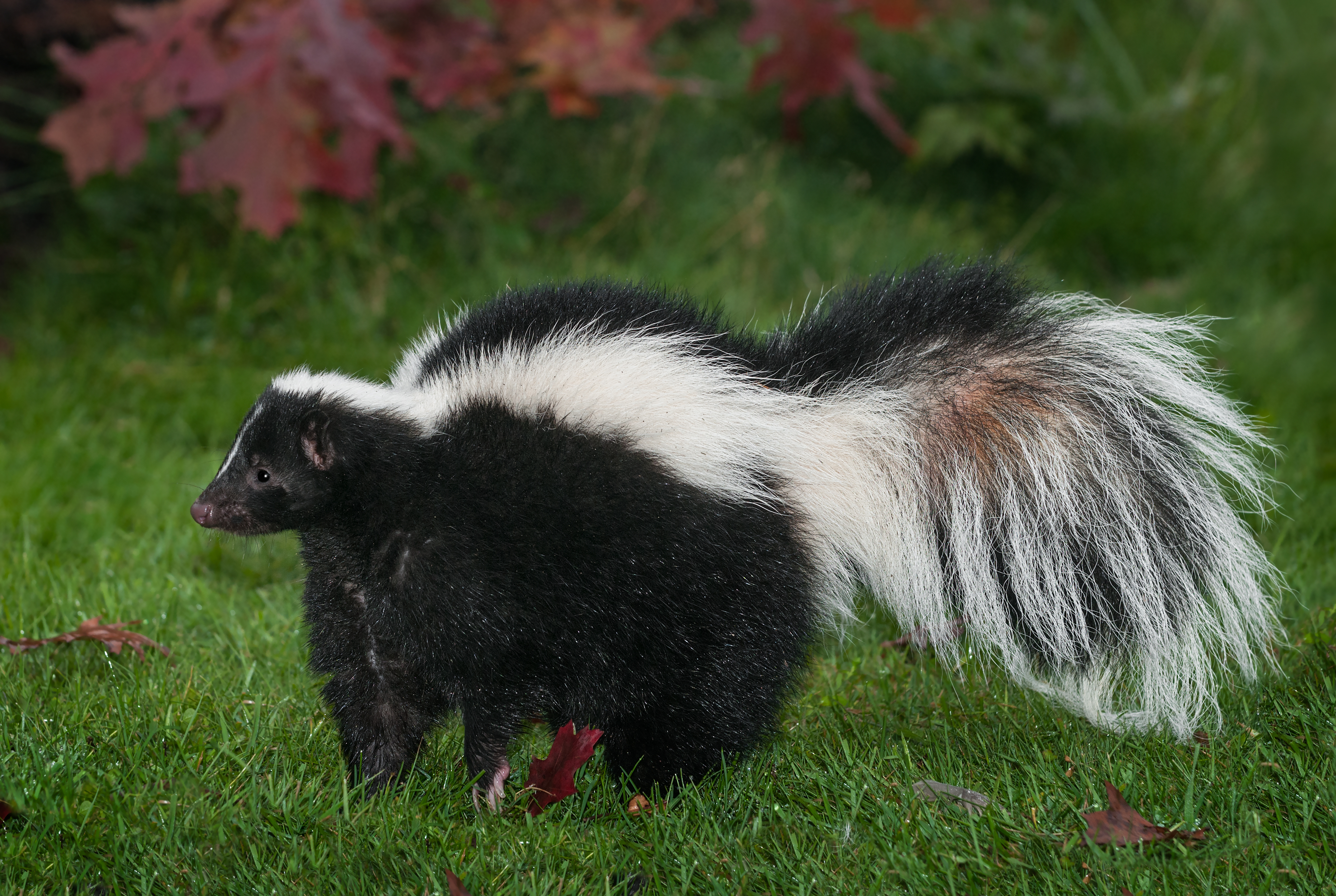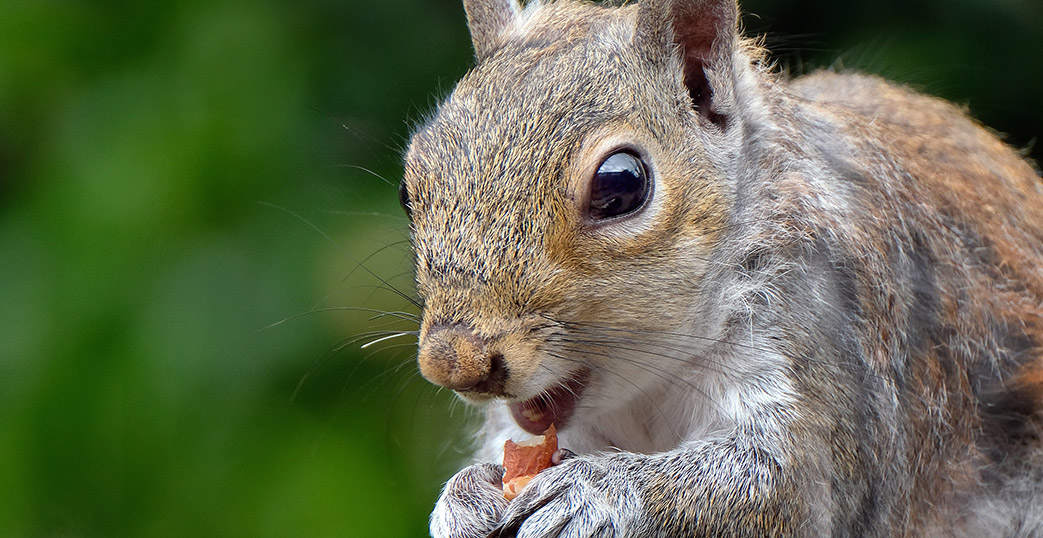Skunk Control & Removal
Most known for their odor, skunks are notorious for their distinctive spray that is made up of oils and sulfur compounds. It is sprayed from their anus with deadly accuracy up to 10 feet away and can cause burning pain and blindness in addition to the nauseating stench.

 Appearance
Appearance
Several species of skunks live in North America, the species are identified by the differing patterns in their coats primarily of white stripes, spots, or swirls on black fur. The common species found in New York are Striped Skunks. About the size of a house cat, skunks have small, triangular heads, long bodies, and muscular legs with sharp claws used for digging. Their long, bushy tails are often also marked with varying white patterns or stripes. These burrowing characteristics are often the cause of skunk and human conflict.
 Diet
Diet
Skunks are generally nocturnal animals that forage for fruits, berries, eggs, insects, worms, and small animals. As opportunistic omnivores, they will eat just about anything, even spilled birdseed, garbage, or garden vegetables, as well.
 Habitat
Habitat
The preferred habitat of skunks are wooded areas with plenty of vegetation. Easily accessible food and water sources like many species are their top priorities. Thus skunks can adapt too many other environments, including urban and residential areas. They usually make their burrows in the abandoned dens of other animals but will also den in suitable logs, brush piles, or abandoned buildings in which to dig out comfortable nests.
 Problems and Damage
Problems and Damage
Entry into homes and yards pose the greatest conflicts with skunks. Yards with vegetable gardens, fruit or nut trees, birdfeeders, or infestations of lawn insects are inviting to hungry skunks. In addition to easy sources of food, skunks invade residential properties in search of safe places to burrow, such as in or under sheds, underneath porches, or beneath the foundation of buildings. Once a skunk or skunks take up residence the potential for unwanted conflicts increases. The obvious being a person or pet being sprayed but these animals also carry harmful diseases like rabies.
 Prevention and Exclusion
Prevention and Exclusion
Prevention for skunks is a matter of removing food sources by cleaning up any bird seed, fruit or nuts from a property and sealing any potential denning site. Once a skunk has moved in we can remove in a safe and humane manner and exclude and active or potential denning site by tightly screening attractive areas such as decks and sheds. Being a burrowing species care must be taken to ensure they do not dig under structures to prevent denning and nesting.
If you need professional skunk removal services for your home
Contact Witzend Wildlife Services today, or give us a call at (716) 982-3777.


